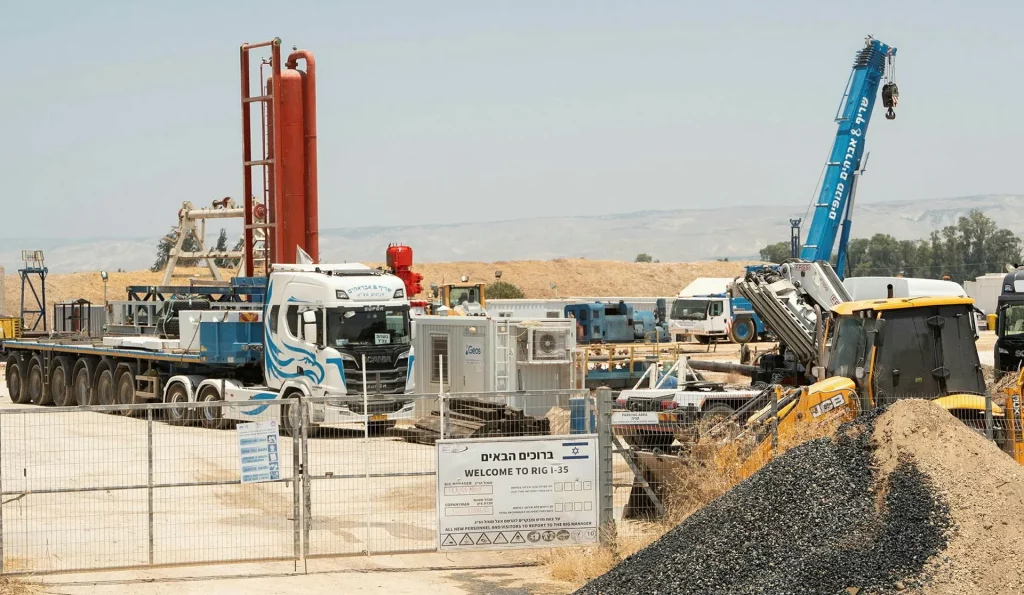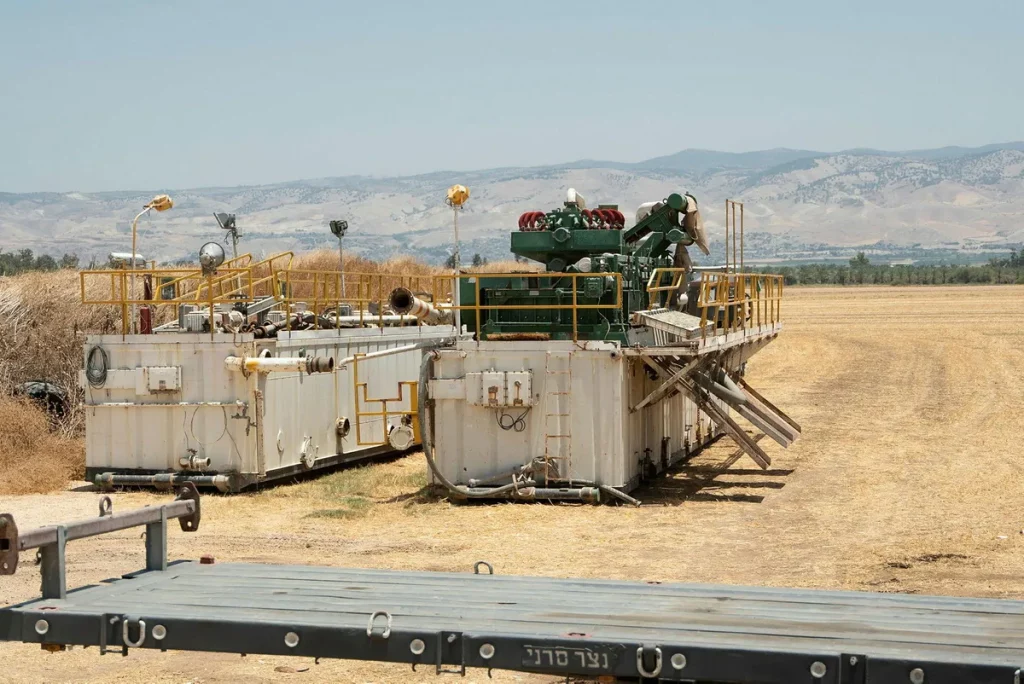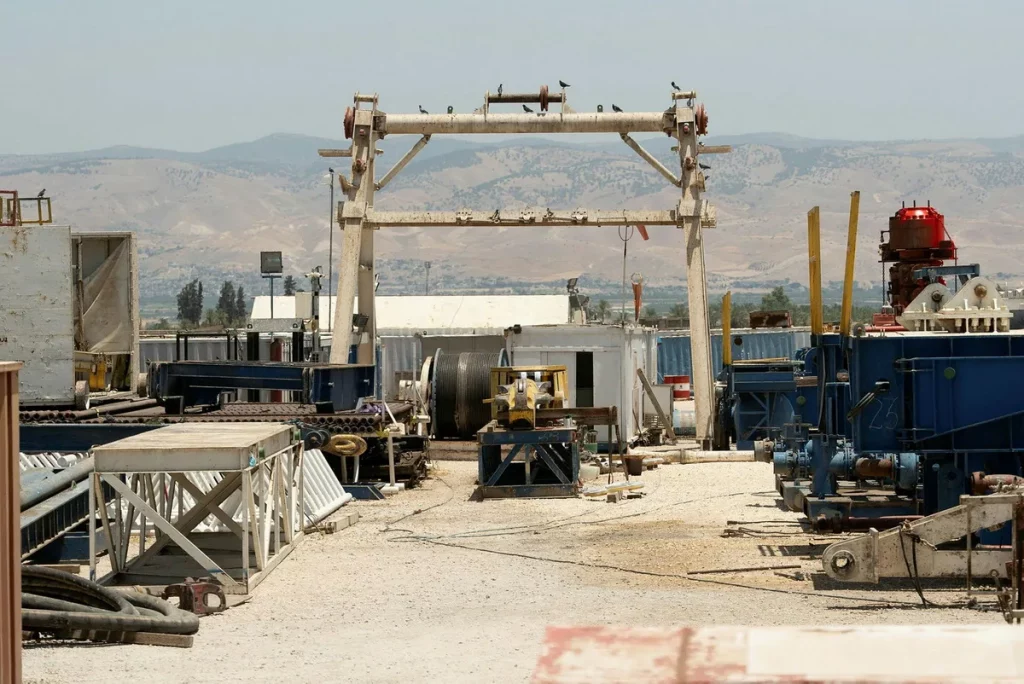Zion Oil and Gas was founded by an American Christian who says he wants to foster Israel’s energy independence to help the Jewish people
Nir Hasson. Jun 23, 2024

The Hebrew-language realm of the social media platform X has been flooded over the past few weeks with ads bought by Zion Oil and Gas, an American energy company that is calling for users to buy its shares for a minimum of $250. The deluge comes ahead of an oil exploration venture in the Jezreel Valley in the north, with the first rigs having already been drilled.
The Energy and Infrastructure Ministry is encouraging the exploration, despite Israel’s public commitment to reducing its reliance on oil and gas and despite scientists, the World Bank and the International Energy Agency agreeing that further oil exploration should be eschewed around the world.
Zion Oil and Gas is no ordinary company. A glance at its website makes it clear that it isn’t just interested in promoting financial interests but also has religious aspirations. Alongside the offer to buy shares, it invites visitors to pray for Israel.
The company was founded in the 1980s by John Brown, an American fundamentalist evangelical Christian who claims he received a prophecy commanding him to help the Jewish people and Israel and to do so by fostering the country’s energy independence. The company’s website uses several scriptural quotes that reference this idea, such as “Then he said: ‘The God of our ancestors has chosen you to know his will and to see the Righteous One and to hear words from his mouth” (New Testament, Acts: 22, 14).
It also quotes Habakkuk 2:2-3: “If it seems slow, wait for it; it will surely come, it will not delay” and Genesis 49:25: “The Almighty, who shall bless thee with … blessings of the deep that lieth under.” The company’s founder interprets the “blessings of the deep” as God’s clue about finding oil on Israel’s land.
Zion Oil and Gas executives emphasize that its religious roots and all sacred texts notwithstanding, it is a modern company that doesn’t just rely on biblical prophecies. Its oil exploration is based on research and sophisticated scientific methods, they say. The company has raised a great deal of capital from small investors, many of them American evangelicals who buy shares partly for ideological motives, chief among them a desire to help Israe

Zion Oil and Gas equipment at its rig near Sde Eliyahu in the Beit She’an Valley. The company has attempted several explorations over the past 23 years without yielding a commercially viable site.Credit: David Bachar
Over the past 23 years, the company has obtained oil exploration licenses and drilled several rigs. It has done exploration drilling in the north near Ma’anit, near Ein Carmel (at a rig named Elijah 3, after the biblical prophet) and at a rig called Jezreel Megiddo 1. None of these found commercially viable quantities of oil.
Last September, the company was granted a new oil exploration license on a 300,000-dunam (75,000-acre) area in the Jezreel Valley. To operate in the area, The company had to find a suitable site and obtain a drilling license. The new license covers 98 percent of the land covered by two expired licenses issued in 2013 and 2020. The environmental group Greenpeace’s Israeli branch says the licenses are basically identical and that the company applied for a new license in the same area because the law regulating oil exploration doesn’t allow licenses to be extended by more than seven years.
“All three licenses were granted to the same body, i.e. Zion Oil and Gas, under circumstances that raise concern that the introduction of minor changes into the Megiddo license [in the Jezreel Valley] is a cover to allow the license-holder to extend its validity beyond the permitted period pursuant to the Oil Law,” lawyer Matan Greenfeld wrote to the petroleum commissioner at the Energy Ministry, Chen Bar Yosef, on behalf of Greenpeace. Bar Yosef rejected the argument, saying it was a new license and that Zion Oil and Gas had been the only company to bid for the oil exploration license in the area.
The granting of the license in Jezreel Valley is part of a larger effort taking place in different parts of Israel. There are four active oil exploration licenses on land in the south – in the Lachish region, the western Negev, and the Arava – and four offshore gas exploration licenses. The Energy Ministry and its Petroleum Council grant the licenses on the basis of the 1952 Oil Law, which gives the ministry broad freedom of action and does not take environmental or climate considerations into account.
In 2021, the International Energy Agency, founded in 1974 following the oil crisis to ensure steady supplies and seen as relatively conservative, recommended an end to oil and gas exploration and a new focus on renewable energy. A UN report published half a year ago was even sharper. It warned that plans to continue expanding the use of fossil fuels “throw humanity’s future into question.” Nonetheless, most of the world’s oil producers keep launching new explorations. They justify the lack of change with the argument that even if humanity quickly switches to renewable energy, it will still need oil and gas for decades to come. Some companies say their oil is “less harmful” because of their production methods.
The Energy Ministry said in response to a request for comment: “The Megiddo Valley license was granted pursuant to the provisions of the law and instruction of the petroleum commissioner in the matter of applying for onshore exploration licenses. As part of the license granting process, a request for bids is published for the requested area in order to allow other parties to submit bids.

“After all the preliminary procedures are completed, the Petroleum Council recommends granting the license,” the ministry continued. “Given all this, it is clear that the claims raised in the letter [from Greenpeace] are groundless and unrelated to facts, as this is a new license that was awarded legally and not the extension of an existing license, with the company having previously drilled pursuant to its previous license.
“As for fossil fuels (oil and gas), because this is a product that the Israeli economy will need for at least the next 15 years, it being based on a local source can only help the Israeli economy, both in terms of energy security and economically.”
Zion Oil and Gas did not respond to a request for comment.
